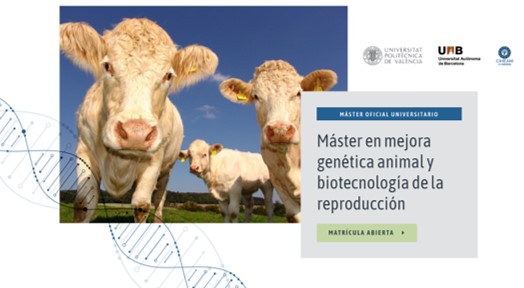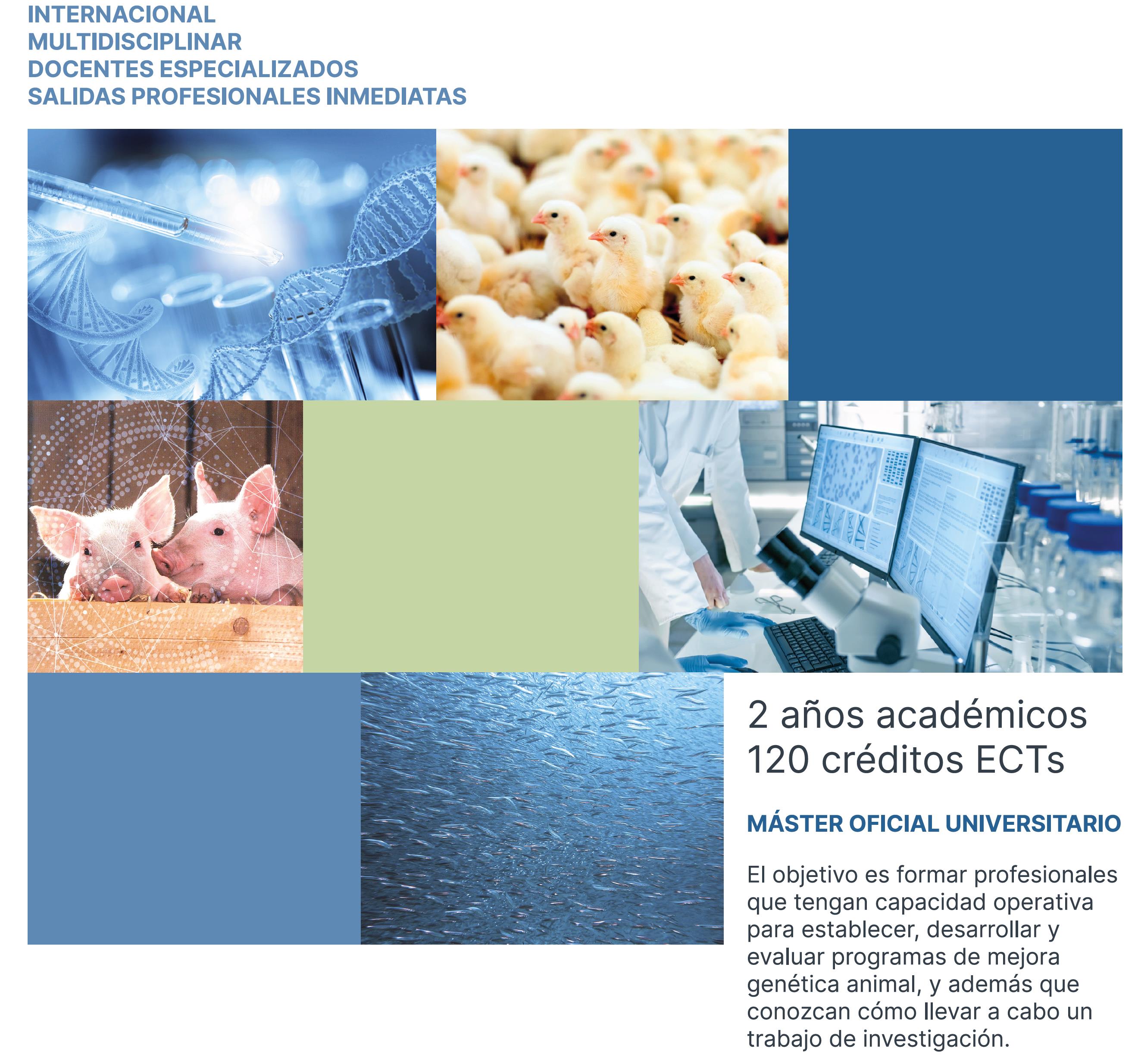 Vera (València) Campus, Universitat Politècnica de València
Vera (València) Campus, Universitat Politècnica de València
Master's Degree in Animal Genetics and Breeding, and Reproductive Biotechnology
120 credits
Credit 35,34 €
(2024/2025)
24 openings
(2024/2025)
Introduction
Future livestock models must be based on sustainability within frameworks of competitive production systems that respect animal welfare and the environment. Animal genetic improvement not only contributes to the sustainability of productions and increases their profitability but also allows for the enhancement of efficiency and adaptation to consumer demand through new technologies. Consequently, population and quantitative genetics, molecular genetics, and reproductive biotechnology are currently fundamental subjects in the development of animal husbandry.
- Population and quantitative genetics: Based on applied statistical techniques, forming the foundation of current animal genetic improvement programs in companies and livestock associations.
- Molecular genetics: Utilizing biology and biochemistry techniques, increasingly involved in animal genetic improvement programs.
- Reproductive biotechnology: Rooted in animal physiology, providing tools that facilitate the application of genetic improvement methods and the dissemination of genetic progress.
This program offers solid training in these essential subjects pivotal to animal genetic improvement. It enables hands-on experience through critical review of current genetic improvement and reproductive biotechnology programs in various species, engaging in discussions with industry professionals, and technical visits to public and private institutions involved in improvement programs.
Key Features of the Master's Program:
- Strong international focus
- Comprehensive master's thesis
- Specialized instructors
- Immediate career prospects
- Multidisciplinary approach
- Video-recorded lectures
Objectives
- Updating of the scientific basis of animal breeding.
- Acquisition of experience in the formulation of breeding strategies for the main species of zootechnical interest.
- Training to join programmes in molecular genetics, breeding, reproductive biotechnology or conservation of genetic resources.
- Acquisition of skills to respond to the specific demands of administrations or companies.
- Initiation into research on problems related to animal breeding.
- Exchange of experiences and points of view in an interprofessional and international environment, in contact with the sector.
Aimed at
Directed towards university graduates related to animal production or biology such as:
Agricultural and Food Engineering, Rural and Environmental Engineering, Forestry and Natural Environment Engineering, Biotechnology, Biology, Veterinary Science, Zootechnicians
Admission criteria
Candidates will be selected on the basis of their academic record, their curricular orientation, their links to breeding or biotechnology organisations or companies, and possibly through a personal interview.
For candidates from Mediterranean developing countries and Latin America (check at: www.iamz.ciheam.org), for which 5 places will be reserved, the diversification of countries of origin will also be taken into account.
Organisation
Department of Animal Science (UPV), Department of Animal and Food Science (UAB) and IAMZ-CIHEAM
Inter-university master's degree
This is an inter-university master's degree from the Polytechnic University of Valencia (coordinator) and the Autonomous University of Barcelona (participant).
The first term (October to December) is taken at the UAB. The rest of the course (from January to June) is taken at the UPV.
Participants
Department of Animal Science (UPV), the Department of Animal and Food Science (UAB), IAMZ-CIHEAM, the Valencian Institute of Agricultural Research (IVIA), the National Institute of Agricultural Research and Technology (INIA) and the Institute of Agrifood Research and Technology (IRTA).










